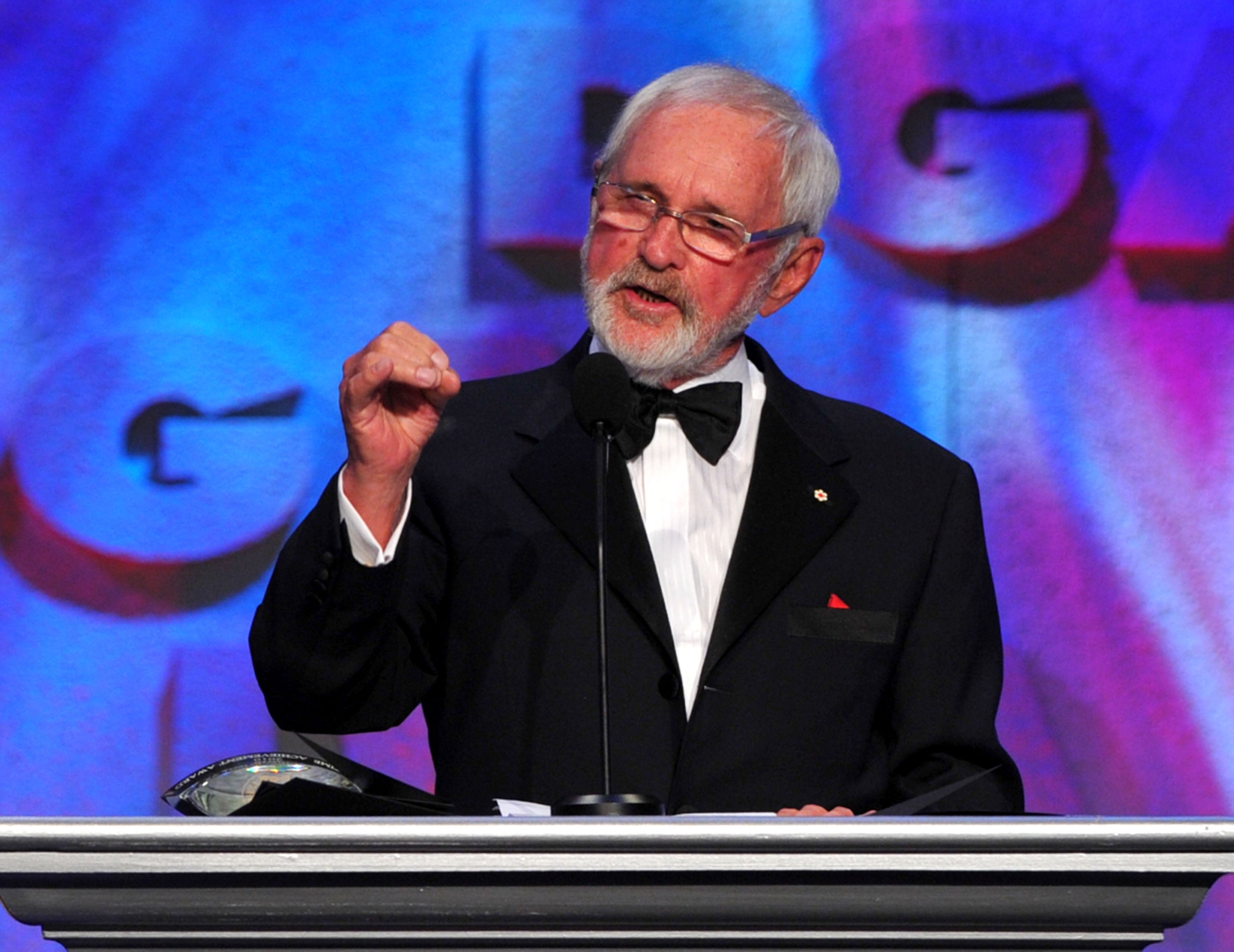Norman Jewison, Moonstruck and In the Heat of the Night director, dies at 97
Canadian-born director had a long and wide-ranging career which included Doris Day comedies and social dramas

Norman Jewison, the acclaimed director of such films as Moonstruck and In The Heat of the Night, has died. He was 97.
The Canadian-born filmmaker was nominated for a total of seven Oscars, starting with The Russians Are Coming, the Russians Are Coming in 1966. He received a special Academy Award in 1999 for lifetime achievement.
According to his publicist, Jeff Sanderson, he died “peacefully” on Saturday. Additional details were not immediately available.
Throughout his long career, Jewison combined light entertainment with topical films that appealed to him on a deeply personal level. As Jewison was ending his military service in the Canadian navy during World War II, he hitchhiked through the American South and had a close-up view of Jim Crow segregation.
In his autobiography This Terrible Business Has Been Good to Me, he noted that racism and injustice became his most common themes.
“Every time a film deals with racism, many Americans feel uncomfortable,” he wrote. “Yet it has to be confronted. We have to deal with prejudice and injustice or we will never understand what is good and evil, right and wrong; we need to feel how ‘the other’ feels.”
He drew upon his experiences for 1967’s In the Heat of the Night, starring Rod Steiger as a white racist small-town sheriff and Sidney Poitier as a Black detective from Philadelphia trying to help solve a murder and eventually forming a working relationship with the hostile local lawman.
James Baldwin condemned the film’s “appalling distance from reality,” and thought the director trapped in a fantasy of racial harmony that would only heighten “Black rage and despair.”
But The New York Times’ Bosley Crowther was among the critics who found the movie powerful and inspiring and in a year featuring such landmarks as The Graduate and Bonnie and Clyde, Jewison’s film won the Academy Award for best picture while Steiger took home the best-actor Oscar. (Jewison lost out for best director to Mike Nichols of The Graduate).

Watch Apple TV+ free for 7 days
New subscribers only. £8.99/mo. after free trial. Plan auto-renews until cancelled

Watch Apple TV+ free for 7 days
New subscribers only. £8.99/mo. after free trial. Plan auto-renews until cancelled
He received two other Oscar nominations as a director, for Fiddler on the Roof and Moonstruck, the beloved romantic comedy for which Cher won an Academy Award for best actress.
He also worked on such notable films as the Steve McQueen thriller The Thomas Crown Affair and a pair of movies featuring Denzel Washington: the racial drama A Soldier’s Story and The Hurricane, starring Washington as wrongly imprisoned boxer Rubin “Hurricane” Carter.
Jewison and his first wife Margaret Ann Dixon (nicknamed Dixie) had three children, sons Kevin and Michael and daughter Jennifer Ann, who became an actress and appeared in the Jewison films Agnes of God and Best Friends. The Jewisons were married 51 years, until her death in 2004. He married Lynne St. David in 2010.
The Toronto-born Jewison began acting at age 6, appearing before Masonic lodge gatherings. After graduating from Victoria College, he went to work for the BBC in London, then returned to Canada and directed programs for the CBC.
His work there brought offers from Hollywood and he quickly earned a reputation as a director of TV musicals, with stars including Judy Garland, Danny Kaye and Harry Belafonte. Jewison shifted to feature films in 1963 with the comedy 40 Pounds of Trouble, starring Tony Curtis and Suzanne Pleshette.
The director’s light touch prompted Universal to assign him to a series of comedies, including The Thrill of It All, which paired Doris Day with James Garner, and Send Me No Flowers, starring Day and Rock Hudson. Wearying of such scripts, Jewison used a loophole in his contract to move to MGM for 1965’s The Cincinnati Kid, a drama of the gambling world starring McQueen and Edward G. Robinson.
His most recent work, the 2003 thriller The Statement, starred Michael Caine and Tilda Swinton and flopped at the box office.
“I never really became as much a part of the establishment as I wanted to be,” he told The Hollywood Reporter in 2011. “I wanted to be accepted. I wanted people to say ‘that was a great picture.’ I mean I have a big ego like anyone else. I’m no shrinking violet. But I never felt totally accepted — but maybe that’s good.”
Additional reporting by The Associated Press
Subscribe to Independent Premium to bookmark this article
Want to bookmark your favourite articles and stories to read or reference later? Start your Independent Premium subscription today.

Join our commenting forum
Join thought-provoking conversations, follow other Independent readers and see their replies